Jackson Heart Study begins Exam 4
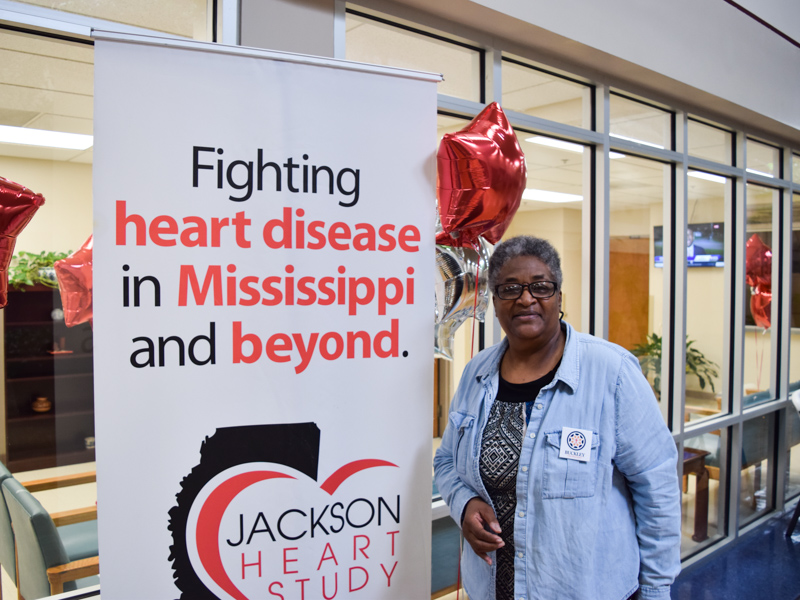
Ella Miller says she “doesn’t like to be late for anything.”
So when the Jackson woman arrived for her appointment at the Jackson Heart Study Exam Center last month about 10 minutes behind schedule, Miller was glad to see someone outside ready and waiting to great her.
“It made me feel important,” she said.
The Jackson Heart Study team has been waiting to see Miller and thousands of other people as it begins in-person visits for Exam 4, no longer delayed by the COVID-19 pandemic. Originally planned to start in March 2020, it is the first time since 2013 that the study has brought its volunteer participants back for a full look at the health.
Or, as Miller says, “It’s been a minute.”
The Jackson Heart Study is the largest study of cardiovascular health and disease in African American adults. Established in 1998, it is a collaboration between University of Mississippi Medical Center, Jackson State University, Tougaloo College, the Mississippi State Department of Health, and about 5,300 participants from Hinds, Madison and Rankin counties.
During Exam 4, Jackson Heart Study participants complete an informed consent process and questionnaires on family and medical history, food intake and brain health. The physical, “high-touch” procedures include height, weight, blood pressure and waist circumference measurements, as well as blood and urine samples. Patients also receive an echocardiogram and electrocardiogram, which look at heart function.
Dr. Karen Winters is the director of Jackson Heart Study Field Center, which manages the exam visits at the Jackson Medical Mall.
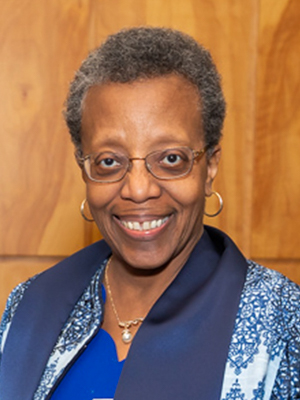
“For now, the Exam Center will only be seeing one participant per day. As we hire more staff, we plan to bring up to five people to the clinic daily,” said Winters, also a professor of nursing at UMMC. “Our goal is to finish the exams by April 2023.”
Winters estimates that about 3,400 of the original JHS participants recruited for Exam 1 – completed between 2000 and 2004 – are still alive today. She and her team expect to bring back about 2,000 of them for this next phase.
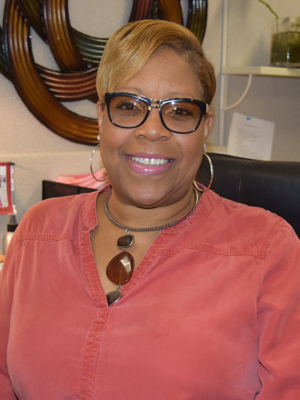
“Our doors are open and we are going to keep the research going on African Americans and heart disease,” said Darcel Odom, an outreach specialist for the JHS.
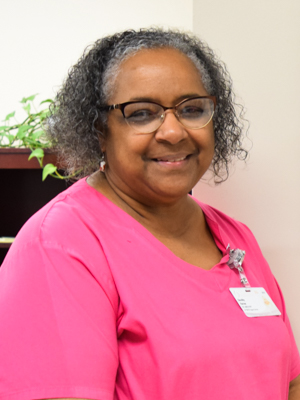
Dorothy Horton, a clinical research nurse for the JHS, said that the returning participants so far have had “very positive” reaction.
“People have been eager to come in,” Horton said. “After some false starts [due to COVID-19], the staff has also been eager and ready for things to progress.”
Because the JHS participants are now middle-aged or older, Exam 4 includes new assessments related to aging, such as gait, grip strength and memory and cognition.
“They tell you two stories and ask you to repeat them, and then ask you to name all of the words you can think of that start with the same letter,” said Miller, 72, who enjoys doing word puzzles at home.
“It’s a joy,” she said of the Jackson Heart Study. “It’s good to know that someone is concerned about the elderly and looking to keep us healthy.”
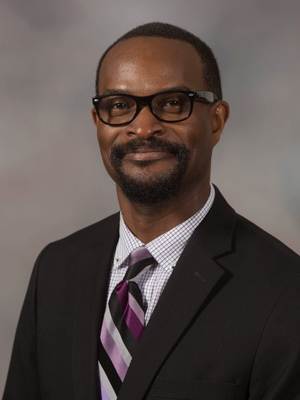
“We are excited to be back in business,” said Dr. Mario Sims, chief science officer and interim director of the Jackson Heart Study. “Well, we were never really out of business.”
The JHS has been preparing for Exam 4 since 2018, when the National Institutes of Health renewed the study’s funding until 2024. The study has continued with its regular activities: annual follow-up calls with participants, publishing research, training students, holding community events and scientific sessions. During the COVID-induced exam delay, they hired new employees, conducted some of the participant questionnaires by telephone, rewrote exam protocols to meet enhanced safety standards, and piloted the new procedures to ensure things would go smoothly when they re-opened.
“The participants are trusting us to protect their health,” Odom said.
Woody Davis of Madison had his exam July 19, the study’s first visit in this new cycle. He said the team did a good job of limiting the risk of COVID-19 exposure, including symptom screening and mask wearing during his visit.
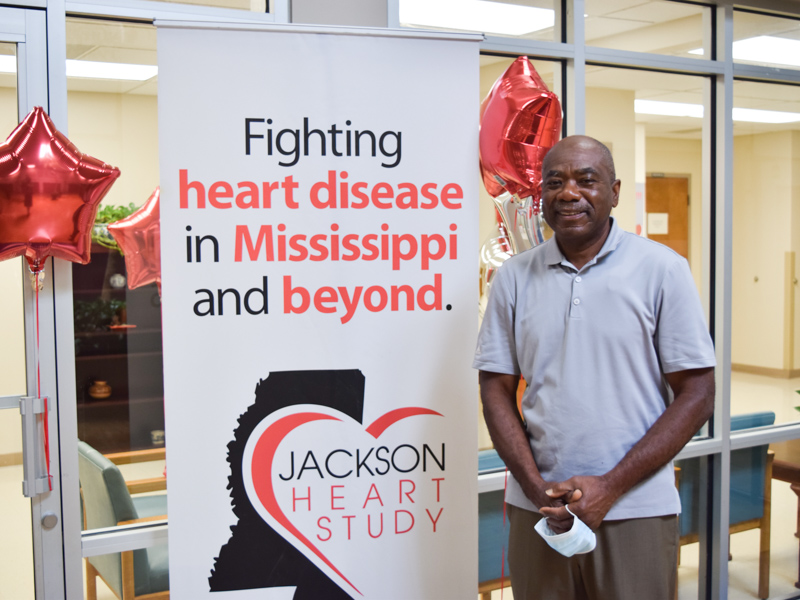
“[The JHS staff] are good people: professional, courteous and upfront,” Davis said.
He joined the Jackson Heart Study 20 years ago because he wanted to help the study achieve its goals, which include developing a better understanding of why African American adults experience a higher lifetime risk of cardiovascular disease than white Americans. He also saw the medical exams as an additional opportunity to help him to keep track of his health.
“I’ve learned a lot about the importance of exercise and food choices and how they make a big difference in long-term health,” Davis said. “I was already a health-oriented person, and the Jackson Heart Study reinforces those same things.”
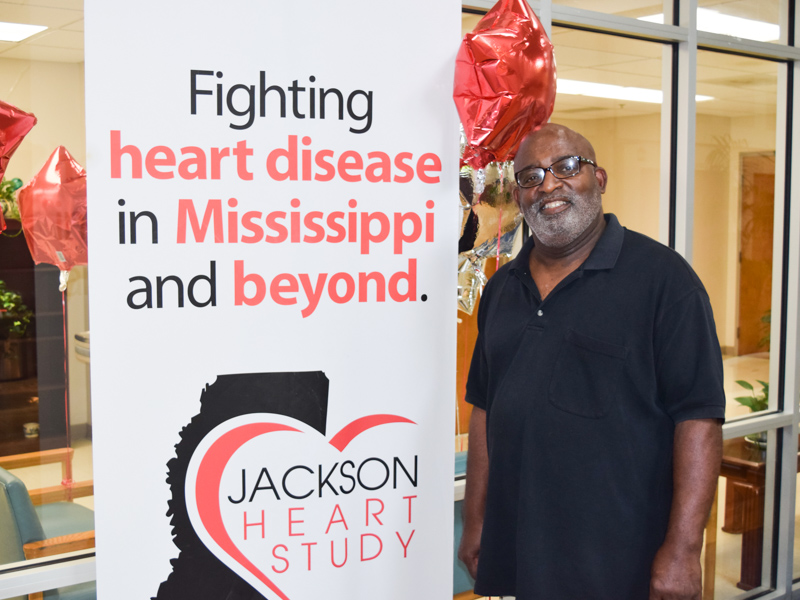
“My grandparents died of heart attacks, so I have a history of heart disease in my family,” said participant Douglas Purnell of Jackson, who also finished his exam during the first week. “I tell people that I joined the Jackson Heart Study for me, because nobody loves me more than I love myself.”
Sims says the study will also benefit new populations outside of the original participants.
“The findings from the Jackson Heart Study will help inform specific, targeted intervention strategies in order to prevent cardiovascular disease, including interventions to help decrease stress and increase mindfulness,” Sims said.
For Purnell, helping that plan come to fruition is important to the African American community in Jackson and beyond.
“Our hearts get affected in all kinds of ways,” he said. “This study is going to benefit future generations, and I pray that they keep it going.”


